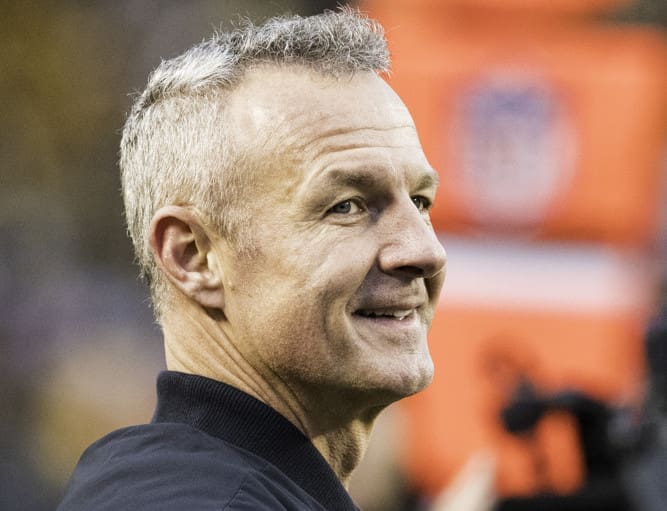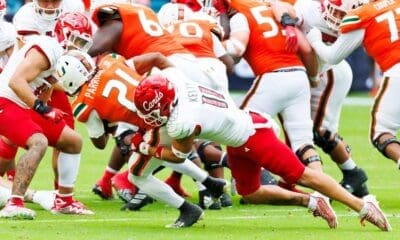Steelers News
Former Steelers Running Backs To Donate Brains For CTE Research

Former Pittsburgh Steelers running backs Jerome Bettis and Merril Hoge announced on Thursday that their brains will go to the National Brain Bank at the University of Pittsburgh when the pass away for Chronic Traumatic Encephelopathy research, also known as CTE.
The National Sports Brain Bank will have ties to the NFL. Seed money came from the Chuck Noll Foundation for Brain Research, a group launched in 2016 partly with a donation from the Steelers. Along with Bettis and Hoge, Steelers president Art Rooney II attended the grand opening of the National Brain Bank.
Bettis and Hoge are among the first group of professional athletes to take part in the National Brain Bank. Neurosurgeons Dr. Joseph Maroon and Dr. Regis Haid, who both played Division 1 contact sports, will participate as well, Pitt officials said.
Most of the research to date has come from the CTE Center at Boston University. However, unlike the CTE Center, the National Sports Brain Bank will be recruiting volunteers, athletes and non-athletes alike, in order to develop a non-bias view on brain health.
The National Sports Brain Bank suggests that some research from the CTE Center shows bias. The brains donated to the CTE Center, for example, typically come from athletics who showed symptoms of the condition while alive. The National Sports Brain Bank aims to “reduce, eliminate, obviate that kind of bias.”
Hoge, who co-authored the 2018 book entitled “Brainwashed: The Bad Science Behind C.T.E. and the Plot to Destroy Football,” feels there’s immense bias with the CTE Center’s research. Hoge told Megan Schiller of KDKA that his stance hasn’t changed that football isn’t something that causes CTE.
“He tells me his stance has not changed. He is more interested in them studying ALL brains (which is what this brain bank will do) because many cases of CTE are found in people who never played contact sports,” Schiller revealed on Twitter.
Bettis said he’s donating his brain for his kids and future athletes.
“I’m a father and my son plays high school football and my daughter plays high school basketball,” Bettis said via KDKA. “It’s important I be that role model. We have job as a parent to help protect our children.”
From an athletic perspective, Bettis said he wants future generations of athletes to benefit from the research. And from a social perspective, he said he wants society to have answers to the causes of neurodegenerative diseases.
CTE can only be officially diagnosed after a person dies and the brain is examined. There are also no cures for Alzheimer’s disease and dementia. In addition to the Chuck Noll Foundation, the National Brain Bank is funded by the Richard King Mellon Foundation and the Pittsburgh Foundation.
The Steelers have been at the forefront of the NFL’s issues with CTE since the beginning. University of Pittsburgh neuropathologist Dr. Bennet Omalu first made the connection between the disease and head trauma while performing an autopsy on former Steelers center Mike Webster in 2002. Fellow former Steelers linemen Terry Long, Carlton Haselrig, Justin Strzelczyk and Ralph Wenzel have also been posthumously diagnosed with CTE.














